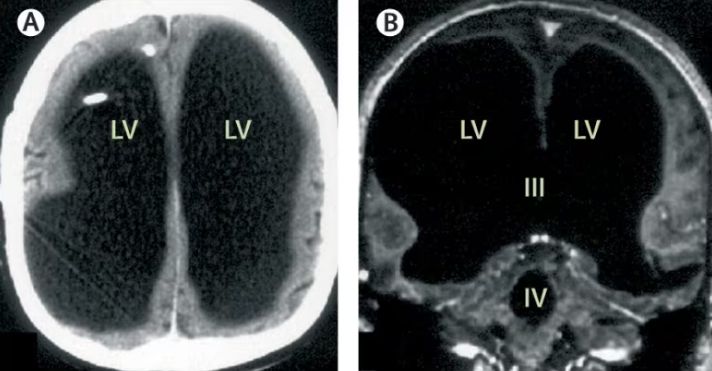Man Missing 90% of His Brain Lives a Normal Life: A Case Study on Neuroplasticity
In an astonishing case, a 44-year-old French man was discovered to be missing around 90% of his brain, yet led a seemingly normal life. Published in The Lancet journal in 2007, this story explores a case that highlights the incredible power of neuroplasticity—our brain’s ability to adapt to trauma or injury over time. Despite the man’s IQ of 75, slightly below average, he lived a fulfilling life as a civil servant, was married, and raised two children.
What Happened Inside His Brain?

The man was diagnosed with hydrocephalus at six months old—a condition where cerebrospinal fluid builds up in the skull, exerting pressure on brain tissue and often leading to significant tissue loss. Over time, this fluid buildup replaced around 90% of his brain with enlarged ventricles, leaving only a thin layer of tissue around the skull. In most cases, damage to such critical brain regions would result in severe impairments. Yet, this man demonstrated the remarkable ability to function normally.
In his teenage years, he experienced ataxia, a muscle control disorder, and weakness in his left leg, leading to an initial surgery to insert a shunt to drain excess cerebrospinal fluid. However, his symptoms returned at age 44, prompting doctors to run a CT scan and MRI that revealed his missing brain tissue. His brain adapted by forming new neural pathways to maintain his cognitive functions—a true testament to neuroplasticity.
What This Means for Brain Science
This man’s story is a profound example of how adaptable the human brain is, even under extreme conditions. The brain’s ability to rewire and reorganize itself over time demonstrates a level of resilience that continues to inspire researchers and neurologists worldwide. It opens doors for further research into treatment options for various brain injuries, and it emphasizes that the human brain’s capacity is often beyond what we may imagine.
Keywords: Man missing brain, hydrocephalus, neuroplasticity, cerebrospinal fluid, brain adaptation, brain injury, neuroscience, brain health.
